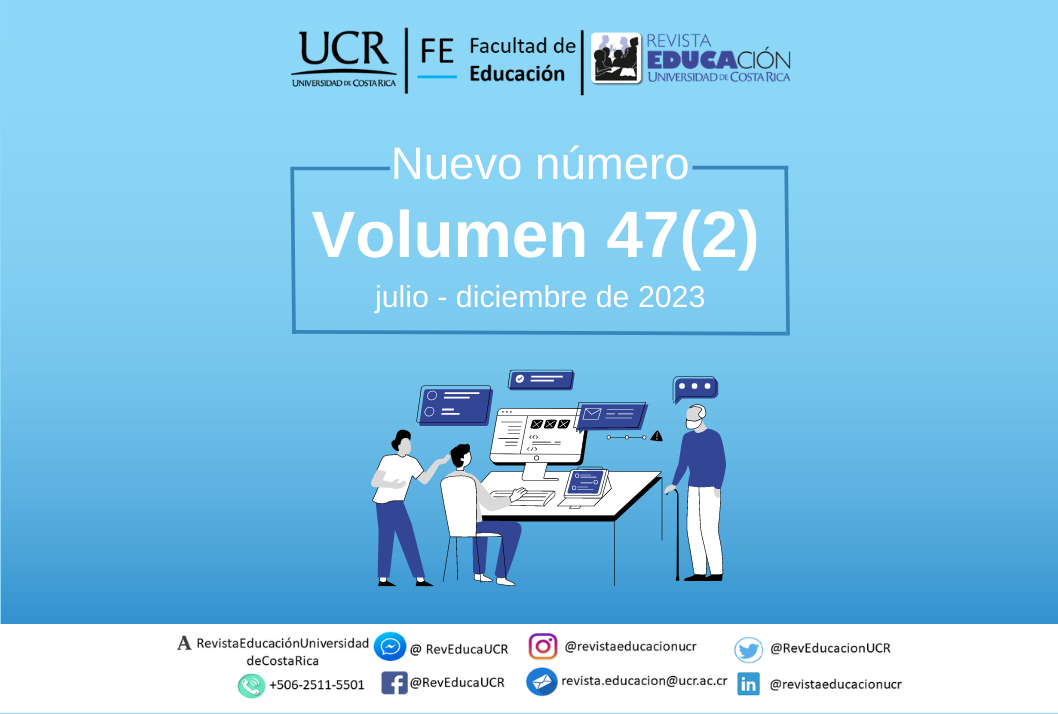Abstract
The general objective of this research aimed to analyze the evaluation of the teaching strategies of the Sociology course by students of Medicine at the Universidad de Antofagasta during the second semester of 2020, considering the context of virtuality. The methodology consisted of quantitative research and the design in a descriptive study, where 36 students participated out of a total of 53 who took the subject of Sociology during the II Semester of 2020. Regarding the data collection instrument, the investigators used a questionnaire and analyzed the information through the distribution of percentages and grades obtained. Moreover, the results indicated a positive evaluation by the students of the teaching strategies employed in the subject in the context of virtual education, the fulfillment of student-centered learning, the facilitator role of the teacher, and the approach to the future professional role through the didactics used, highlighting the contribution of medical humanities. As for the study's limitations, the students perceive that the development of asynchronous activities in the course implied a greater academic load; therefore, the researchers recommend improving this aspect. On the other hand, the study provides relevant information for the deployment of educational quality assurance processes in the Medical School of the Universidad de Antofagasta and the development of training in pedagogical skills that incorporate the topic of virtual learning environments.
References
Albornoz, E., Alvarado, R. y Guzmán, M. (2022). La didáctica en los entornos virtuales de aprendizaje. Revista Metropolitana de Ciencias aplicadas, 5(1), 96-102. http://remca.umet.edu.ec/index.php/REMCA/article/view/474/489
Boud, D. y Molloy, E. (Coords.). (2015). El feedback en Educación superior y profesional: Comprenderlo y hacerlo bien. Editorial Narcea. https://bit.ly/425RBzf
Casasola, W. (2020). El papel de la didáctica en los procesos de enseñanza y aprendizaje universitarios. Revista Comunicación, 29(1-2020), 38-51. https://revistas.tec.ac.cr/index.php/comunicacion/article/view/5258/4908
Gómez, M. (2006). Introducción a la metodología de la investigación científica. Editorial Brujas. https://bit.ly/3YK0ZFO
Guardiola, E. y Baños, J. (2017). El papel de las humanidades médicas en la educación de los profesionales de la salud del siglo XXI. Revista de Medicina y Cine, 13(4), 155-157. https://revistas.usal.es/index.php/medicina_y_cine/article/view/17196
López, J. (2005). Planificar la formación con calidad. Editorial CISSPRAXIS. https://bit.ly/3JLbaWJ
Mamani, J. y Uscamaita, R. (2016). Organización social y calidad de vida en APRESUR - asociación de pacientes transplantados renales Región Sur – Arequipa, [tesis de licenciatura, Universidad Nacional de San Agustín de Arequipa]. https://bit.ly/3yBdY26
Merino, M. y Pintado, T. (2015). Herramientas para dimensionar los mercados: la investigación cuantitativa. Editorial ESIC. https://bit.ly/3JfkP66
Ministerio de Salud de Chile [M.I.N.S.A.L]. (2020, 1 de abril). La OMS considera que brote de coronavirus califica como una pandemia global. Ministerio de Salud de Chile. https://www.minsal.cl/la-oms-declara-el-brote-de-coronavirus-pandemia-global/
Ramírez, I., Jaliri C., Méndez B. y Orlandini, I. (2020). Percepciones universitarias sobre la educación virtual. Red de docentes IB, 3(1), 1-6. https://www.aacademica.org/ivonne.fabiana.ramirez.martnez/11.pdf
Rodríguez, B. (Coord.). (2020). Docencia colaborativa universitaria: Planificar, gestionar y evaluar con entornos virtuales de aprendizaje. Ediciones de la Universidad de Castilla – La Mancha. https://bit.ly/42aIqOc
Rojo, N. y García, R. (2000). Sociología y salud. Reflexiones para la acción. Revista Cubana de Salud Pública, 26(2), 91-100. https://www.redalyc.org/articulo.oa?id=21400203
Ruz-Fuenzalida, C. (2021). Educación virtual y enseñanza remota de emergencia en el contexto de la educación superior técnico-profesional: Posibilidades y barreras. Revista Saberes Educativos, (6), 128-143. https://sabereseducativos.uchile.cl/index.php/RSED/article/view/60713/64507
Universidad de Antofagasta [U.A]. (2001, 1 de Junio). Plan de Estudios. Currículum conducente al grado académico de licenciado en medicina y al título profesional de médico-cirujano. Universidad de Antofagasta. https://www.uantof.cl/carreras/medicina/
Comments

This work is licensed under a Creative Commons Attribution-NonCommercial-NoDerivatives 3.0 Unported License.
Copyright (c) 2023 Revista Educación - Journal of Education



